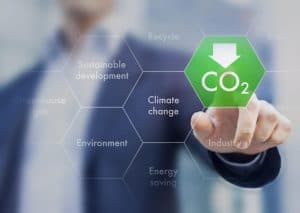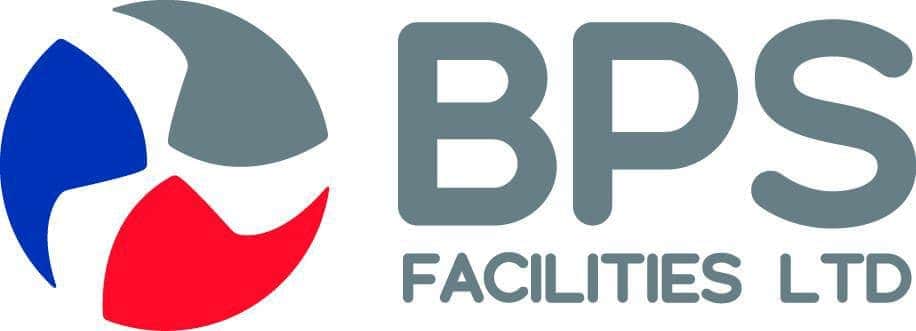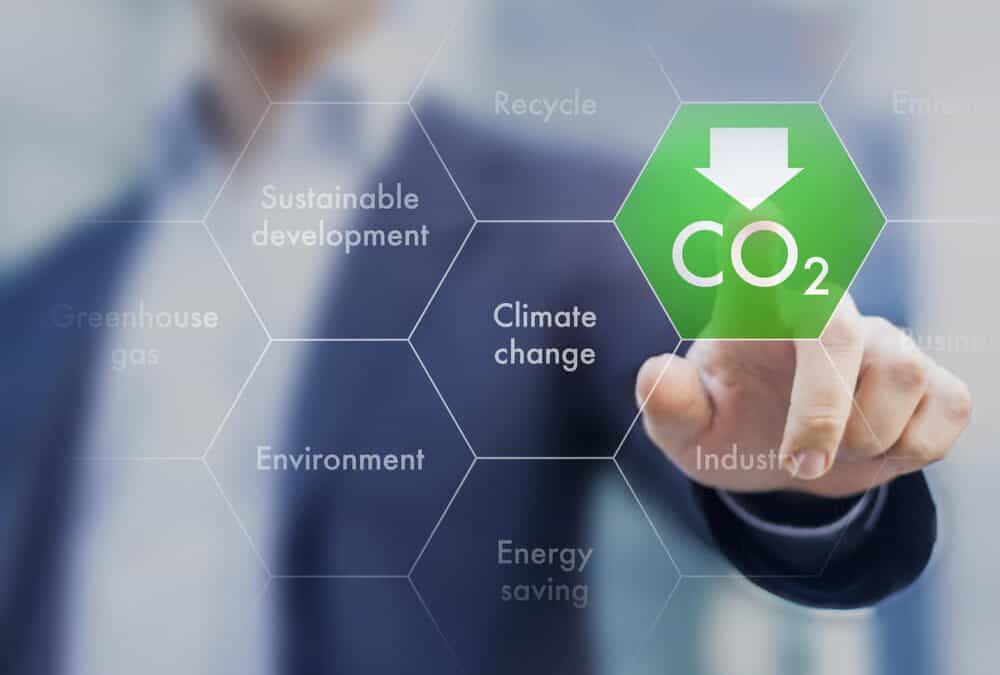Reduce your Businesses Carbon Footprint (And Save Money On Energy Bills!)
Environmental taxes encourage businesses to run in a more environmentally friendly way. There are taxes and schemes for different sizes and types of businesses. More and more businesses are now much more aware of their Carbon Footprint and are taking huge steps to reduce their impact with renewable energy solutions and long term plans of becoming carbon neutral, working towards reducing the effects of climate change.
The UK Government emissions targets mean that as much as possible of the UK’s dioxide emissions will need to be cut by 2050, and those remaining will have to be offset with new technology such as carbon capture and storage.
Despite the new rules, only a third (31%) of businesses say they have no plans to be net carbon neutral at all.
The Climate Change Levy is an environmental tax charged on the fossil fuel that businesses consume. Its purpose is to encourage businesses to become more efficient which then reduces their overall emissions.
The Climate Change Levy (CCL) is set by the UK government and can be paid at the main rates or the Carbon Price Support (CPS) rates.
You can find out everything you need to know about Climate Change Levy here and it’s a good idea to be familiar with what you are entitled to claim and how.
How Can I Reduce my Businesses Carbon Footprint?
As a business there are many ways you can reduce your carbon emissions and these will result in you reducing your fuel consumption, your footprint and it will also save you operating costs in the long run.
You can Reduce your Businesses Carbon Footprint by taking different actions within your business. Not only does this support the environment but it will also reduce your operating costs. Fuel prices normally increase above the rate of inflation, therefore a 20% reduction in your bills can result in the same benefit as a 5% increase in sales or revenue.
Ask your employees to be involved with this and how they can impact unnecessary energy usage in the workplace and how as employees they could support the reduction in your greenhouse gas emissions. It can be simple things like turning the lights off, keeping doors shut, changing to LED light bulbs, recycling, all of which act as energy conservation and will have a positive environmental impact.
A great way to reduce your footprint and reduce your energy costs is by having a professional and experienced company like BPS come out to assess your property, your needs and your current boiler.
Your boiler or heating system can sometimes be assessed and upgraded to offer increased efficiency without the need for replacing your whole system which can be expensive. BPS heating engineers will come out to your business or commercial property and assess your system and its energy efficiency. They will recommend any changes and improvements which can be made for you to achieve greater efficiencies, therefore, decreasing your fossil fuel consumption as well as your businesses carbon footprint.
We can install new technology including, ‘smart’ boilers and systems which are planned and designed around your business and its needs, giving you a bespoke integrated heating system which will cost you less to run whilst decreasing your carbon footprint and the impact on the environment and climate.
What are Smart Boiler Systems?
Smart boilers allow remote access to your heating and hot water. Multiple users can control heating temperatures, times and hot water using an app and the internet. Properties can be split into zones and controlled separately enabling you to distribute heat more efficiently. Some Smart Boiler Controls can communicate with the boiler and show you, or your Boiler Specialist their performance data, along with any faults and this enables you or them to fix much more quickly if it breaks down.
In summary, Smart Boilers allow remote monitoring and control, ensuring they can be easily adjusted in real-time to run at optimum efficiency.
 About BPS Facilities
About BPS Facilities
BPS are a professional and reputable family-owned Facilities Management company and we can take care of your business or commercial property needs meaning you don’t have to. Our teams work throughout Wales, the South West of England and through the M4 Corridor.
We offer our planned and emergency building maintenance services to a wide range of customers in a variety of business sectors and industries.
Our Main Service Functions
- Emergency Repair Services
- Scheduled & Preventative Maintenance Services
- Specialist Project Team
We offer a wide range of services for your business or commercial property:
- Building and Construction Services including Remodelling and Redesign
- Carpenter Services
- Electrical Services
- Plumbing Services
- Boiler Services
- Gas Heating Services
- Air Conditioning & Ventilation Services
- Catering, Kitchen & Refrigeration System Services
- Laundry & Textile care
- Building Management System Services
- Fire Alarms and Access Control System Services
We have a team of employed fully qualified specialists in our engineering hubs and this means we can get to you quickly if you need us in an emergency.
Our 24/7 365 days a year customer service team will ensure the right team or engineer is dispatched to your property every time. Our technical team are on hand to answer your questions and allows us to sometimes fix problems remotely or they are there to answer any of our team’s questions when they are onsite with you, ensuring we are able to quickly identify and resolve problems the first time.
Our professional service is unrivalled and we deliver exceptional value for money solutions to commercial businesses and properties in an emergency or for any repair or maintenance work.
At BPS we are proud to offer:
- Rapid, Reputable, Responsive Professional Trade Services
- Dedicated engineers on call 24/7/365
- Emergency call-outs 24hrs a day, 7 days a week, 365 days a year
- Engineers routinely fix 90% of breakdowns on the initial visit
- Design, Planned Maintenance & Emergency Callout Service
- Project design
- Supply
- Installation
- Servicing
- Repair
- Maintenance
About Low Carbon Heating Systems
Low carbon heating systems will reduce the greenhouse gas emissions your business creates whilst reducing your businesses or properties running costs.
A low carbon heating system releases little or no carbon whilst it is operating and heating your property compared to even newer gas or oil boilers which do release carbon gases even if less than an older system.
Low emission heating systems are also known as renewable heating systems and they work by extracting heat from sustainable and renewable sources. The sources can be the sun, the ground, water, natural materials and the air comparing this to a conventional boiler which burns fossil fuels and produces large quantities of carbon dioxide into the atmosphere. The carbon emissions then trap heat in the atmosphere and this is what is leading to significant climate change and global warming.
Natural and resources like the sun and the wind will never run out which makes them sustainable. Fossil fuels including gas and oil will eventually run out and are already significantly reducing so change needs to happen now.
Renewable and therefore sustainable heating systems are all capable of heating and providing hot water to your business or commercial property. The type of renewable heating system you have will depend on your property and its location, some options will be completely renewable and others will be 50/50 but if you decide to go with it any option will reduce your energy costs and your businesses carbon footprint. BPS can help you with the options available to you.
Types of Renewal Sustainable Heating Systems:
- Solar Heating Panels
- Biomass Boilers
- Air Source Heat Pumps
- Ground Source Heat Pumps
- Water Source Heat Pumps
- Hybrid Heating Systems
Solar Heating Panels
Solar heating panels use the sun to heat the water in your property compared to solar panel systems which produce electricity for your property. Solar heating panels can supply hot water to a wet central heating system as well as taps, showers and baths.
This type of renewable system uses the sun as a free resource to heat water and this means you only need to use your boiler to heat your property, resulting in cheaper energy costs and a reduction in your carbon emissions.
Biomass Boilers
Biomass boilers work in a very similar way to fossil fuel (gas and oil) type boilers. Instead of burning fossil fuels, natural materials such as wood logs, chips and pellets are burnt creating biomass fuel which can be fed back into the mains electricity grid, providing electricity to your property, or both.
The type of biomass boiler you have will depend if it is manually operated or automatic. A manual biomass boiler needs you to feed the natural materials into the system when it is running low. An automatic biomass boiler uses a hopper to feed the biomass fuel (natural material) into the boiler from your reserves as and when it is needed.
Air Source Heat Pumps
Outdoor space is needed for the installation of an air source heat pump. The ground contains a unit with a fan which pulls the air in from outside and the heat pump then uses it to create hot water. The hot water is fed around a wet central heating system, giving heat and hot water to the property, this is called an air to water heat pump. An air-to-air heat pump system heats a property using fans which pull the air in, the fans can also cool the property in warmer weather, much like air conditioning does.
Ground Source Heat Pumps
A ground source heat pump needs a larger space outside to house a network of pipes which are installed underground. A refrigerant liquid is circulated through the pipework which absorbs the underground heat. The refrigerant liquid then transfers to a heat exchanger where it is heated more and then circulated into a central heating system.
Water Source Heat Pumps
If you live very near a river or a lake then a water source heat pump may be an option for you if you have the right permissions. The water absorbs the warmth from the sun throughout the day and the water source heat pump pulls it in and heats it even more. The heat is then extracted and circulated through a central heating system in your property providing heat and hot water.
Hybrid Heating Systems
Hybrid heating systems are a combination of two types of boiler, a traditional boiler and an air source heat pump. This gives you a 50/50 renewable source and savings. A hybrid heating system switches between the heat pump and the boiler depending on which one will deliver the most efficient performance at the time.
How much does a low carbon heating installation cost?
Gas and oil boilers can be installed for anything from £2,000 upwards and the cost depends on the size of your property and if you are moving systems and pipework. A renewable heating system is likely to cost more to install but you will reap the savings in the years following with reduced operating costs. Renewable heating system prices can cost up to £21,000 if you were having an automatic biomass boiler fitted which is a 100% renewable system, but again it all depends on the size of your property and its layout. BPS can come out to your property and complete a full site survey giving you options for the different renewable energy heating systems.
What are the benefits of switching to a low carbon heating system?
There are lots of benefits to a low emission heating system for your business or commercial property and BPS can assess which ones will work for you and your business, plan, design, supply, install and maintain it for you.
- Significantly reduce or end the need for fossil fuel from your supplier
- Significantly reduce your heating and hot water costs
- If applicable to you and your heating system you can receive payments through the Renewable Heat Incentive (RHI) as a reward for heating your business or property with renewable energy
The Renewable Heat Incentive (RHI) Government Scheme encourages both domestic, businesses and commercial property owners to install renewable energy sources by offering financial support and payments. The scheme has now been extended for a further 12 months and will now run until 31 March 2022, so it is a perfect time to consider your options.
YouGov conducted a survey to track the climate attitudes of businesses from major sectors (education, accounting, retail, wholesaling, transport, technology services, restaurant services, construction, real estate, personal care and natural resources such as mining, forestry and oil).
- 93% of businesses agreed that climate change is real and being driven by human activity
- 46% of respondents said their organisation had plans in place to become carbon-neutral by 2030
- However, only 5% of these said being carbon neutral was feasible in the next year, with most businesses targeting between 2 and 5 years
- A further 8% of respondents said their business had already achieved carbon-neutrality which at this time would likely mean the use of carbon offsetting for most businesses
What is Carbon Offsetting?
Carbon offsets are a way of compensating your carbon emissions by funding an equivalent saving elsewhere. Offsetting is used by businesses to balance out their emissions by paying towards emission savings in other parts of the world.
If you need a new Renewable Heating System or Boiler and you are considering your business’s carbon footprint and how you can reduce it, contact us today on 029 20 484114 and one of our team can arrange a free, no-obligation site visit and quote for you.

